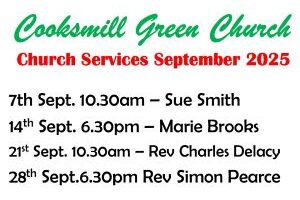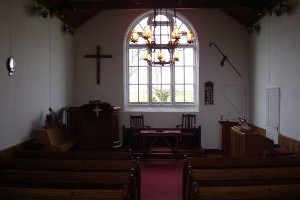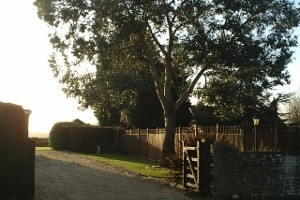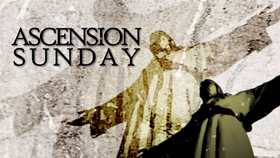Thought for the Week – Sunday 20th June 2021
Our Gospel narrative for today (Mark 4:35-41) places Jesus and His disciples in the heart of a great storm, one that puts great trepidation into the hearts of seasoned fisherman and who whilst believing they are about to perish, see Jesus asleep on a cushion! We all face great storms in life and naturally can feel both scared and overwhelmed by things we cannot control, the last 15 months being a prime example. Here comes the honesty bit now as I ask you this, how many times perhaps have you prayed to God, to ask for these and other troubled waters in your life to be stilled and yet felt like He was asleep in the back of the boat? I doubt very much you would be alone if you did.
As Jesus stills the raging storm, we see again the awesome power of God in action where the unpredictable and merciless forces of nature suddenly respond like obedient children to His voice. The Disciples who were in absolute fear of these forces, now seem equally afraid of the suddenness of the dramatic calm, as the realisation hits home of just what Jesus really can do, sure He’s already done amazing things before but this is on another scale. Even after what they already knew of Him, the narrative leads us to believe that they still lacked the expected depth of faith that such close followers should have, one that will lead them to the truth that they were always safe when He is nearby, that even though seemingly asleep, He was right there with them as they faced their greatest of fears.
These witnesses to the miracles of Jesus, now suddenly chose to hold entirely onto their rational understanding of their tangible world, rather than give over their darkest fears to the fortifying reassurance that we call faith, sound familiar to anyone? It could and should lead us to consider then that if the disciples had such uncertainties about the nature of what it is to have unerring faith in what God can do, then surely, we too can be susceptible to the same insecurities that most, if not all of us, certainly experience. It’s not about judging the strength or indeed frailty of the Disciples faith, it’s about considering the complexion of our own, and that in itself perhaps takes some real honest reflection on what it is that we each consider to be its meaning.
The Gospel reading as usual provides us with the opportunity to both find and absorb the spiritual sustenance derived from the words and actions of Jesus. Each of us has the opportunity to find a deeper and more personal understanding of our relationship with God, simply by placing ourselves within either the historical narrative or the present-day metaphor it so often provides, and then, importantly, being truly honest with the results. If you are anything but honest about the thoughts and feelings you experience when you encounter scripture, be it servile acceptance or sceptical disagreement, then I believe you risk missing out on the deeper learning potential that it may offer, after all God knows what you are thinking before you do, so the only person you can possibly deceive is yourself. Honest introspective reflection somehow breathes new life and relevance into ancient text, the words and their meaning belong to you and the power of the Holy Spirit is no longer constrained.
Every now and then I find myself experiencing a head and heart conflict over the interpretation of Scripture, which also includes my understanding of faith, where the logical head is often too keen to try and refute the plausibility of the divine omnipotence of God, whilst my faith heart counters with a deeper emotional desire for the presence of a guardian to protect me, nurture me, talk to me and of course unconditionally love me. He is all powerful and yet gentle, disproving of my sins yet unrelenting in His forgiveness, all this and so much more allows my smug faith heart to ask my rebellious head “ can your cold logic do the same?” and with that it’s simply game over and faith wins the day. Not everything in life has to be about the logical, well not for me, but what about you? How do you reconcile any conflict you have between the concrete experience of reality and the seemingly illogical mystery of having a faith?
We are all God’s children but we are all as individual as the fingerprints we own, so would He really expect us to all believe, think and act the same? I mean, have you ever found yourself measuring your own depth of faith against that of others around you and having done so, felt that they are somehow closer to God and therefore maybe a better Christian? I used to do this until I realised that faith is the foundation upon which each of us builds our own individual and very personal relationship with God and therefore has the potential to be as unique as those fingerprints I mentioned. So I now believe that we should not try to benchmark faith, I would argue that it is not a comparable human quality to be placed upon a scale as we so often do with attributes like strength, knowledge or compassion, it’s too complex and intimate to the soul for us to do this without somehow causing offence. It’s true value for me is found when it is most sorely tested, the darkest of times, moments when life’s demands bear down and no earthly remedy is available. How strong is my faith? Well that’s a matter for me and God himself but I do find myself empathising with the Disciples in that boat, would I have behaved any different, most certainly not, would I behave any differently in the here and now storms of life, well, I know that at any given time I could find myself imploring Jesus to wake up and come to my assistance and my honest expectation would be that He will, though when He does I fully expect to hear the same chiding words that He gave to the Disciples “Why are you afraid? Have you still no faith?”
Perhaps with all that I know of Him, He’s got a fair point, a tough, but fair point indeed……Amen
Danny
Heavenly Father thank you for always being at my side,
knowing that you are always listening for my call.
Your love gives me the strength I need to face my darkest fears
You calm the storms of my life.
Almighty God you are powerful beyond my understanding
I am humbled at the hearing of your name
I am filled with awe at the beauty of your creation
I am inspired by your endless love and grace
Holy Spirit come fill my life with hope for a better future
Forgive my transgressions and set my heart and mind upon
the path that draws me closer to you.
For in you I am always saved,











